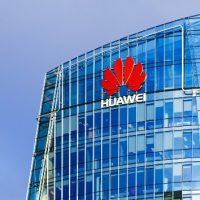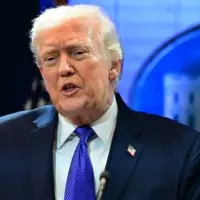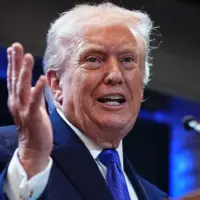
WoodyAlec/iStock(NEW YORK) — Federal authorities hit Huawei with racketeering, conspiracy to steal trade secrets and a litany of other charges Thursday in the latest escalation of tensions between the U.S. and the Chinese telecom giant.
The allegations announced by the Department of Justice range from misappropriating intellectual property from U.S. tech companies to bypassing sanctions to do business with North Korea and Iran.
The 16-count superseding indictment announced Thursday was brought against Huawei and four of its subsidiaries, as well as its chief financial officer, Wanzhou Meng.
Meng, the daughter of Huawei’s founder, has been the center of an international extradition saga since December 2018 when she was arrested in Vancouver at the request of the United States.
The new charges relate to alleged decades-long efforts by Huawei and subsidiaries “to misappropriate intellectual property, including from six U.S. technology companies, in an effort to grow and operate Huawei’s business,” according to a statement from the Justice Department announcing the charges.
A Huawei spokesperson told ABC News in a statement, “This new indictment is part of the Justice Department’s attempt to irrevocably damage Huawei’s reputation and its business for reasons related to competition rather than law enforcement. These new charges are without merit and are based largely on recycled civil disputes from last 20 years that have been previously settled, litigated and in some cases, rejected by federal judges and juries.”
“The government will not prevail on its charges, which we will prove to be both unfounded and unfair,” it concluded.
Officials say Huawei’s alleged efforts to steal trade secrets and U.S. technology were successful.
“As a consequence of its campaign to steal this technology and intellectual property, Huawei was able to drastically cut its research and development costs and associated delays, giving the company a significant and unfair competitive advantage,” the statement said.
Moreover, authorities claim Huawei had a “bonus program to reward employees who obtained confidential information from competitors.”
Their alleged policy “made clear that employees who provided valuable information were to be financially rewarded,” it added.
The indictment also includes new allegations that Huawei and its subsidiaries did business in countries subject to sanctions, such as Iran and North Korea.
Authorities allege that the companies arranged for shipment of Huawei goods to users in the sanctioned country, and internally referred to them with “code names” such as “A2” for Iran and “A9” for North Korea.
Finally, U.S. officials claimed Huawei lied about its relationship Skycom, saying it was not a subsidiary. As an alleged subsidiary of Huawei, Skycom “assisted the Government of Iran in performing domestic surveillance, including during the demonstrations in Tehran in 2009.”
Copyright © 2020, ABC Audio. All rights reserved.














